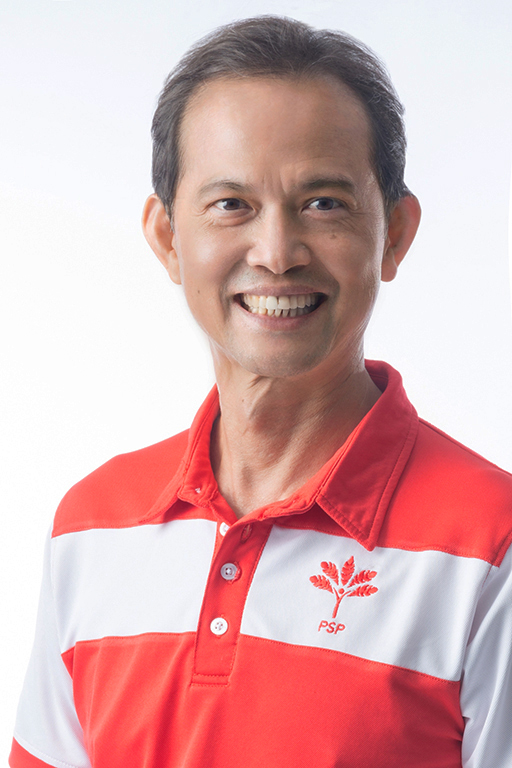These Parliamentary Questions were posed by Mr Leong Mun Wai in Parliament on 9th May 2022 and answered
IMPACT OF REOPENING OF ECONOMY ON DEMAND AND SUPPLY OF MANPOWER AND MEASURES PLANNED
Mr Leong Mun Wai asked the Minister for Manpower for each year in the past five years (a) what is the number of local part-time food and beverage workers; and (b) of these workers, how many are students.
Dr Tan See Leng (Minister for Manpower): Mr Leong Mun Wai also asked about the number of local part-time workers in the F&B services for the last five years and the proportion who were students. The number of local part-time workers in the F&B services remained stable at around 35,000 on the average over the last five years, of which around 15% were students. Part-time work can benefit both employers who need the manpower and workers who will not only earn an income, but can also gain work experience for the future.
NUMBER OF S PASSES AND EMPLOYMENT PASSES ISSUED AND SCREENING OF FOREIGN MANPOWER UNDER NEW ELIGIBILITY CRITERIA FROM SEPTEMBER 2022
Mr Leong Mun Wai asked the Minister for Manpower (a) what is the number of new S Passes (SPs) and Employment Passes (EPs) that have been issued since 1 January 2022; (b) whether the total number of SPs and EPs issued to date is comparable to pre-COVID-19 times; and (c) what approach is the Ministry taking to screen foreign manpower entering the job market in view of the new eligibility criteria that will take effect in September 2022.
Dr Tan See Leng (Minister for Manpower): Based on preliminary MOM administrative records, there were around 23,900 new EPs and S Passes issued in Q1 2022. This is comparable to around 25,200 new EPs and S Passes issued in Q1 2019, pre-pandemic. Overall, the total number of EP and S Pass holders was 329,100 as at March 2022, remaining significantly below the pre-COVID level of 393,700 in December 2019 as a result of border restrictions dampening the inflow of foreign manpower over the past two years.
All EP and S Pass applicants have to meet MOM’s prevailing eligibility criteria before their passes can be issued. This includes the EP qualifying salary, as well as the S Pass qualifying salary, levies and quota. In September 2022, the EP qualifying salary and S Pass qualifying salary and levies will be raised. These moves are part of MOM’s regular updates to ensure that our framework keeps pace with local wage growth, so that foreigners are not coming in just because they are cheaper than local PMETs. From September 2023 onwards, EP candidates must also earn sufficient points under the new Complementarity Assessment Framework (COMPASS) to qualify for an EP, to allow for a more holistic evaluation of complementarity.
MOM will not apply the new criteria ahead of these timelines. To do so would be unfair to businesses. The point of announcing these changes early and phasing them in gradually is to provide businesses with time to plan ahead and adjust. As businesses hire EP and S Pass workers ahead of the above timelines, they should also keep these upcoming changes in mind so that their new hires will be able to meet the renewal criteria in the future.
PERCENTAGE OF EMPLOYMENT PASS HOLDERS, PERMANENT RESIDENTS AND SINGAPOREANS HOLDING SENIOR ROLES IN FINANCE SECTOR
Mr Leong Mun Wai asked the Prime Minister what is the current percentage of Employment Pass holders, permanent residents and Singaporeans holding senior roles in the finance sector.
Mr Tharman Shanmugaratnam (for the Prime Minister): As at end-2021, about 71% of the financial sector workforce were Singapore Citizens, 14% were Permanent Residents, and 15% were work pass holders. For senior roles1, based on MAS’ survey results for 2020, about 46% were Singapore Citizens, 21% Permanent Residents and 33% work pass holders. These proportions have remained stable over the years, with a gradual increase in the proportion of Singapore Citizens holding senior roles in the finance sector.
In absolute terms, more than 3,000 Singapore Citizens now hold senior positions in the financial sector, an increase of more than 80% compared to 2016.
Note(s) to above PQ:
1 Senior financial professionals with more than 15 years of related work experience and undertake executive decisions in the company.
STATISTICS ON SINGAPORE FIRMS WITH FOREIGN PMETS
Mr Leong Mun Wai asked the Minister for Manpower
(a) what is the current percentage of firms in Singapore with more than 30% foreign PMETs; and
(b) of the firms in Singapore with more than 25% foreign PMETs from a single foreign nationality, what percentage has (i) more than 25 PMETs and (ii) less than 25 PMETs respectively.
Dr Tan See Leng (Minister for Manpower): Amongst firms hiring at least one employee, around 20% have a foreign PMET share of 30% or more. Out of firms that have a single foreign nationality comprising at least 25% of its PMET employees, three per cent hire 25 or more PMET employees and 97% are small firms that hire fewer than 25 PMET employees. This is similar to the share of small firms in the overall economy.
However, it should be noted that the workforce ratios of small firms are easily skewed by their small base. Of these small firms where a single foreign nationality comprises at least 25% of its PMET employees, the median number of PMET employees is two. In a firm with two PMET employees, if there is one Singaporean and one foreigner, the share of foreigners from a single nationality would already be 50%. Therefore, it is not meaningful to look at the distribution of small and large firms in this way.

